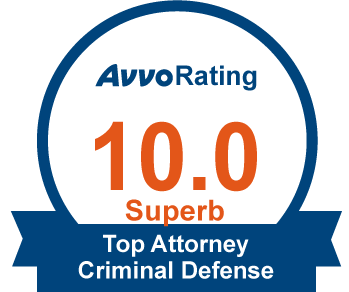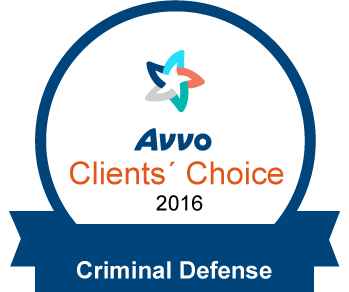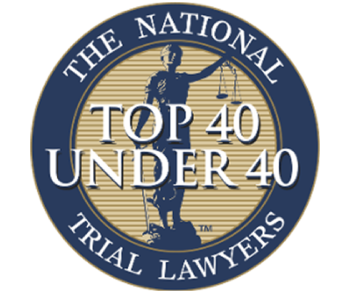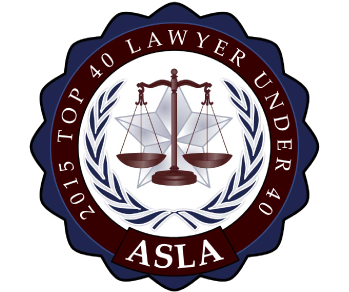Understanding the Law on Controlled Substances
The national government has provided a list of various drugs that should be considered controlled, meaning that the drugs should not be made available to consumers but only through a legal subscription or in any other legitimate manner. This law, as provided under Section 801 and the subsequent sections under the Controlled Substances Act, provides 5 schedules of those drugs which are considered as the most hazardous drugs in the world. There are two main schedules:
- Schedule I gives the most hazardous substances, and
- Schedule V provides the least dangerous substances.
Most states have already adopted this federal schedule, among them California.
Controlled Substances in California
In California, controlled substances are drugs such as cocaine, heroin, and other prescription drugs that are not supposed to be obtained without a proper prescription. Being found in possession of such drugs is a crime and one can face serious legal consequences if found guilty of that offense. Illegal possession, in this case, will mean owning or otherwise possessing an illicit drug or one of the controlled substances without permission or justification.
The charges will apply if the defendant is found guilty of carrying cocaine, large amounts of marijuana, methamphetamine, or other types of narcotic drugs. Note that there are prescription drugs that qualify to be categorized as controlled substances. These too could bring the same charges if you do not have any proper prescription.
California has been trying hard to rehabilitate drug abusers found in possession of illegal substances. Even so, state laws are still in place, and the ownership itself will be considered as a grave offense that is punishable by law.
Section 11351 of the Health and Safety code also provides clear guidelines on what is regarded as a controlled substance and the consequences one could face if found in possession of these drugs. One could be charged with possession of controlled drugs for resale or use, and each of these charges is punished differently in the state. The prosecutor must, however, prove that the offender had the said substance, and they intended to use or sell it.
Things to Note
Innocent people are, often, suspected of possessing controlled substances. That is the reason why the services of a well-skilled and experienced criminal attorney are needed. With the right attorney by your side, you can quickly fight the charges for a reduced sentence or have your charges dropped if at all you are innocent of the crime.
Proposition 47 has changed things so much in the state, such that possession of a controlled substance can be treated as a misdemeanor in the state. This may make the crime sound as if it is not so severe, but there is a need to note that the consequences are usually more severe and could carry long-term effects.
Even if you get a misdemeanor, you could still spend a full year in custody and pay more substantial fines, liable to the type and amount of illegal substance you had. In other cases, the crime may end up as a felony, and this means even more penalties and long-term consequences.
Controlled Substances Provided Under California’s Penal Code 11350
Section 11350 of the California Health and Safety Code provides a clear definition of the controlled substances. Under this code, there are 5 schedules of the controlled drugs in the state, and each schedule contains a broad category of the type and amount of drug that one can be punished for possessing. These schedules are:
1st Schedule: cocaine, opiates and mescaline and other similar substances
2nd Schedule: morphine, raw opium, and all other narcotics
3rd Schedule: anabolic steroids and pentobarbital
4th Schedule: mainly prescription medications such as zolpidem and diazepam
5th Schedule: less-illegal prescription drugs like codeine in low doses
Elements of Possession of a Controlled Substance
To convict a person of the crime of illegal possession of controlled drugs, the judge must prove the following elements:
That the substance in question is an illegal substance
If you are found in possession of drugs, the prosecutor will first seek to find out if indeed the drug in question is an illegal substance. Again, he/she will attempt to find what schedule the controlled substance falls into. Substances in the first schedule are treated with more seriousness than those in the fifth schedule and therefore, could attract a more substantial penalty.
That the offender had the controlled substance
There must be proof that the offender had physical or personal control over that controlled drug. The court will seek to find if the offender had either a constructive or actual possession of the said drug. What this means is that the person could have had the substance in their pocket, or a personal safekeeping or that he/she had control over that drug, maybe by having it in a bag, their car's glove compartment or hidden somewhere in their home.
That the offender was aware that the substance in their possession was an illegal substance
One can be found guilty of this crime only if they knowingly and intentionally had control of a controlled substance. The prosecutor may not need to prove that the offender was aware that the drugs were controlled substances. However, if the offender was aware that the drugs were there, and he/she had the intention of using or controlling them, they could be found guilty of the offense. The element of knowledge is natural to prove through the circumstances of the case, even without actual statements from the offender or any other evidence that the accused had or was using the drugs.
That the offender had shared possession of the drug
One can be found guilty of possessing a controlled drug if the court proves that he/she had at least partial control over those drugs. If for instance, the accused lived in a shared apartment where the police found cocaine, the prosecuting attorney must ascertain that he/she was not just a tenant in that apartment but also part of the team that was using or controlling the drugs.
There is always an assumption that a person must be holding the substances to be arrested and charged with possession of an illegal substance. This is not true. Law enforcement officers will arrest you and charge you with drugs control in three different scenarios:
- If you had the actual ownership of the drugs. This is when you physically have the drugs on you, maybe on your hands or inside your pocket or bag you are carrying
- Constructive possession- this occurs when you are not in actual possession of the drugs, but you have access to the place where they are. This could be at your home/apartment, in your car, or your gym locker. In this case, the prosecuting attorney must demonstrate that the substance was indeed within your reach.
- Joint possession- this is the same as shared possession, and it happens if the court establishes that the substances were being controlled by two or more people. If the offender contributed money in the purchase of controlled drugs, or they lived in the house where the drugs were found, they could be easily accused of joint possession of illegal substances.
Penalties for Possession of a Controlled Substance
Possession of a controlled substance is a serious crime, and the severity of its penalties depends on several factors such as the type of drug in question, the schedule it falls into and the conditions surrounding the drug possession. The offender's criminal history will also be considered, especially if they have a past account of arrest for the same crime. In the state of California, possession of an illegal substance is a felony offense according to Section 11351 of the state's Health and Safety Code. The penalties that an offender can expect if sentenced to the crime include:
- Imprisonment in a county jail for two, three or four years
- A fine that could go up to $20,000
- Probation, with or without prison. If without jail, the offender may be obligated to participate in community service, undergo drug counseling, attend drug abuse classes, or participate in a work-release program.
- Formal probation under the supervision of a probation officer
These are just the general punishments. Additional penalties may apply liable to the amount and type of illegal drug in your possession. If, for example, you were found in possession of cocaine or heroin, you may face an extra three years if the drug amount surpasses one kilogram. If, on the other hand, the substance amount goes up to ten kilograms, you could get an additional ten years in your sentence. The sentence could go up to 20 more if the number of drugs exceeds forty kilograms. Again, if it is established that you are an undocumented immigrant, you could get deported.
Possible Defenses for Possession of a Controlled Substance
Other than the penalties listed above, your reputation could be affected if you were convicted of a serious crime like possession of an illegal substance. For that reason, you need proper legal representation to contest the charges. An experienced criminal attorney will have in-depth knowledge and familiarity with different types of drug cases to help you plan a strong defense that could help reduce your charges or have them dismissed. Some of the defense strategies that could work in a situation like this include:
You were not aware that the drugs existed or were illegal
To be found guilty of this crime, the prosecuting attorney must demonstrate that you knew that the drugs were in your possession and that they were illegal. If however, you did not know of the existence of the said drugs or that the drugs in your possession were illegal, you may not be found guilty of the offense, and the court may acquit you of the crime of illegal possession. For this defense to work, you need not have a prior conviction of a similar crime. You may also be required to undergo drug testing, which you must submit to.
You had a valid prescription
A prescription from a licensed physician in the state may save the day. If you had one, this is enough proof to show that you didn’t possess the drugs illegally.
The police conducted an illegal search and seizure
Your attorney could use this defense to dispute some of the evidence the law enforcers had gathered against you. In California, everyone has the right to freedom from unreasonable search and seizure. If the police did not comply with some of the legal procedures and formalities in place, anything they find and seize might not be admissible as evidence in a court.
You were not in possession or control of the drugs
There are many instances of people being arrested and charged with crimes they did not commit, and this could be one of them. If there is no proof that you had actual, joint, or constructive possession of illegal drugs, the case might be dropped.
A criminal charge of possession of a controlled substance is among the most severe charges in the state of California. This means that punishments and consequences that result from the conviction can be harsh. If therefore you or your loved one is facing an arrest and charge of illegal possession of controlled drugs, what you need is the best legal defense. The Long Beach Criminal Attorney can possibly have your case dismissed or the penalties reduced. Call us at 562-308-7807 and let us discuss the best way forward.








